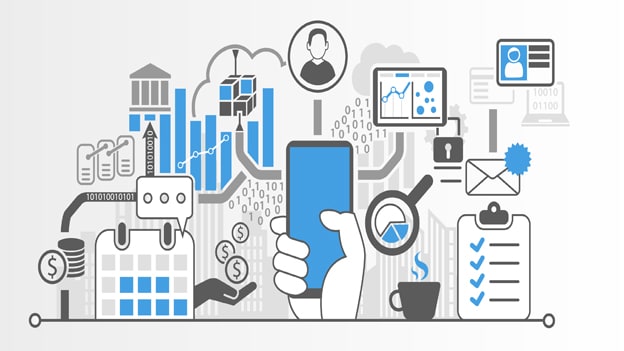Here’s what you should know about Blockchain in Recruitment

What is blockchain and why is it important?
Originally invented as the backbone of Bitcoin, blockchain is a digital, public database of transactions, where the term “transaction” may refer to anything from payment between two parties to automated validation of the authenticity of the sensitive information or someone’s identity. It can be used to keep track of information (of any kind), is secure and is immune to falsification. The transactions will be recorded in the public ledger but will be anonymous to those who weren’t involved directly as part of the transaction.
“Most importantly, a blockchain removes the need for a “trusted third-party” to capture and validate the authenticity of each transaction. Instead of the data being stored on a server owned by a company, these transactions will be encrypted and stored as “blocks” across a decentralized, P2P computer network. Subsequently, with more data getting stored in the database, these blocks form a chain; hence the name.”
Another reason why blockchain is more a revolution than just a technological innovation is because of its potential to give us back the privacy we have lost to Social Media sites, who collect our data and sell it to other companies, or sometimes back to us in the form of ads. Essentially, blockchain technologies take the power away from these corporations, give us the ownership of our data and establish a secure gateway that cannot be hacked through which our information will be shared.
Who is using blockchain?
Majorly, organizations in the banking and capital market sector are attempting to use blockchain for payments and records. But the potential uses of blockchain are not just limited to that. Organisations across industries, including Tech behemoths such as Accenture, IBM, and Microsoft, are trying to build products and services that benefit from blockchain technologies. Maersk, the world’s largest shipping company, tested this technology to track their cargo and the retail giant Walmart uses it to track the movement of livestock from China through the supply chain.
“Majorly, organizations in the banking and capital market sector are attempting to use blockchain for payments and records. But the potential uses of blockchain are not just limited to that. Organisations across industries, including Tech behemoths, are trying to build products and services that benefit from blockchain technologies.”
Educational institutions are setting up blockchains to securely store and share student records. For instance, MIT has Blockcerts, which they refer to as a “permanent and tamper-proof infrastructure of trust”. In legal sector, attorneys are writing “Smart Contracts”, which are but coded automation that release money from escrow when the specific terms of an agreement are met.
How can HR and recruitment benefit from blockchain technologies?
Before we explore the possible uses in HR, we should understand that it’s going to be quite a while before we see mass adoption of blockchain technologies in the HR and Talent Acquisition space, maybe more than 3–4 years. But for now, it can certainly find its place in your bucket list of HR strategies.
Some of the key areas in HR and recruitment where blockchain technologies can be integrated are:
- Background Verification:
The BG check process as of today is slow, involves a lot of human/third-party intervention and thus is expensive and is often exhausting for candidates, as they fill out the authorization forms and self-attest their documents. With blockchain, all the candidate’s records; Including those pertaining to identity proofs, academic certifications, and degrees, employment history, previous salary break-ups, visa status etc., can be pre-validated and stored in a secure platform.
Candidates can manage their own profile throughout their career and grant access to their employer at the time of need. This removes the need for third-party verification services that add to the recruitment costs and saves a considerable amount of time as there’ll be no more chasing down previous employers and educational institutions to validate the candidate information.
- Talent Sourcing, Acquisition, and Management:
Connecting and collecting candidates’ information across platforms to get the profile matching correct against the JD. Suggesting referrals based connections one has in their network, thus enhancing sourcing network.
- Resume Validation and Accessibility:
Processing information across the internet to validate the recommendations, key profile, and information; contribution to skill community groups, participation in tech contest etc.
- Paperless Onboarding:
Validating the candidates’ information like employment history, address proof, educational credentials, age proof, PF and ESIC linking etc. across institutions ensures easy onboarding of candidates without using paper documents.
Today, the quality of coding will have to be tested and secure. We are in early stages towards achieving that goal, even after a number of years of being on the internet. We’re still seeing hacks In the digital domain. The potential for apps to fail is there. Blockchain will have to evolve to be secure, more user-friendly and verifiable before it becomes as common as the Internet is today.













